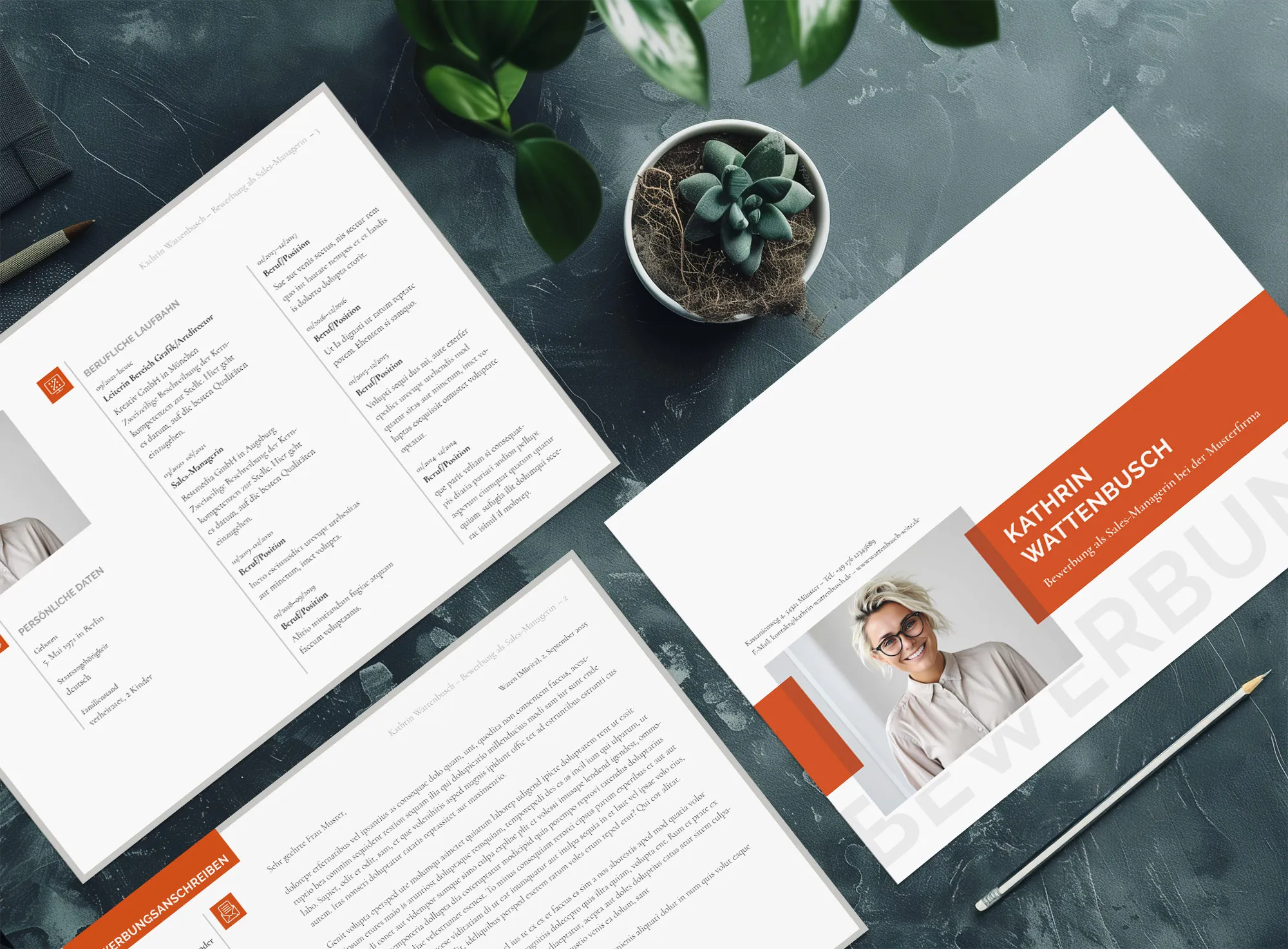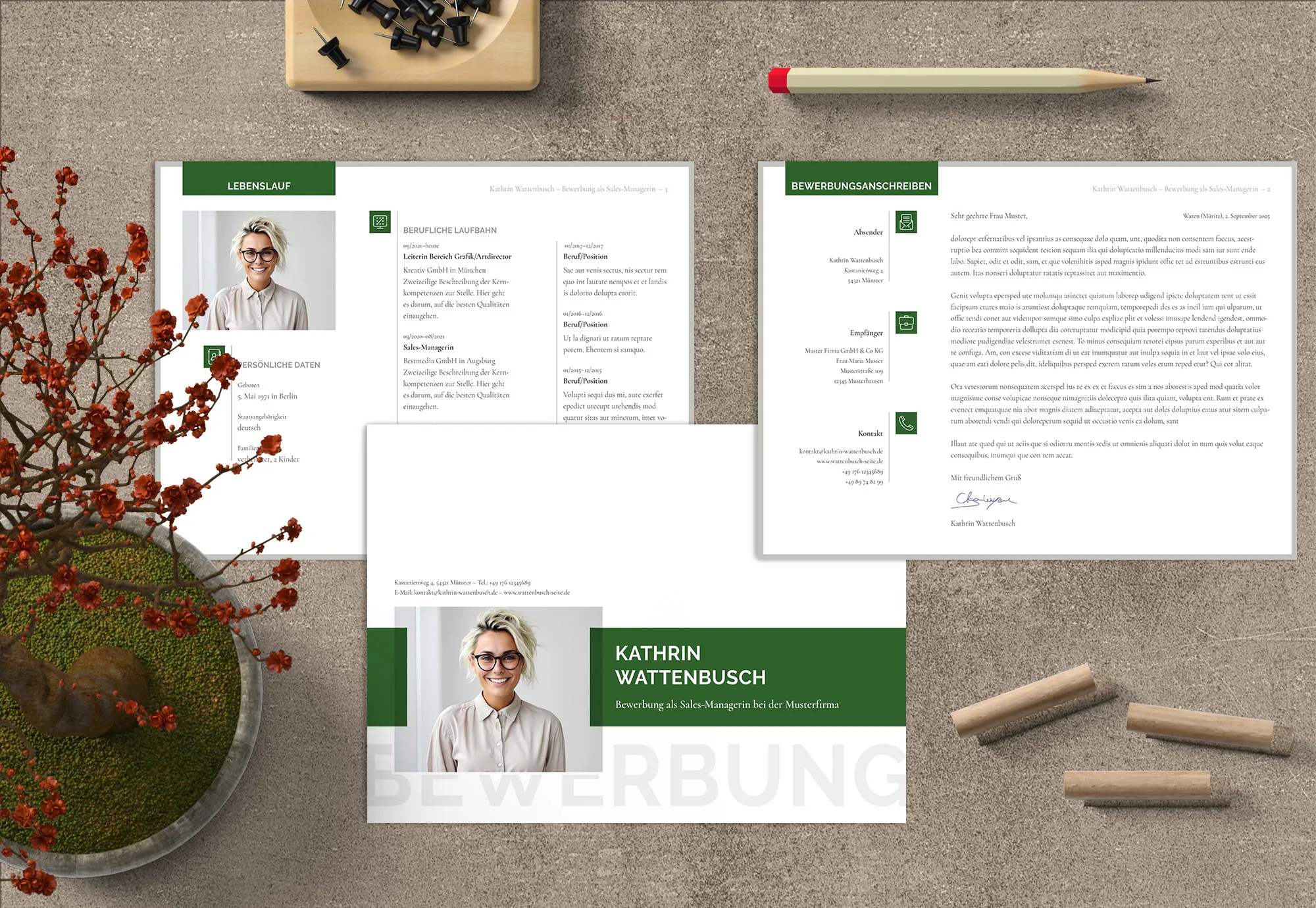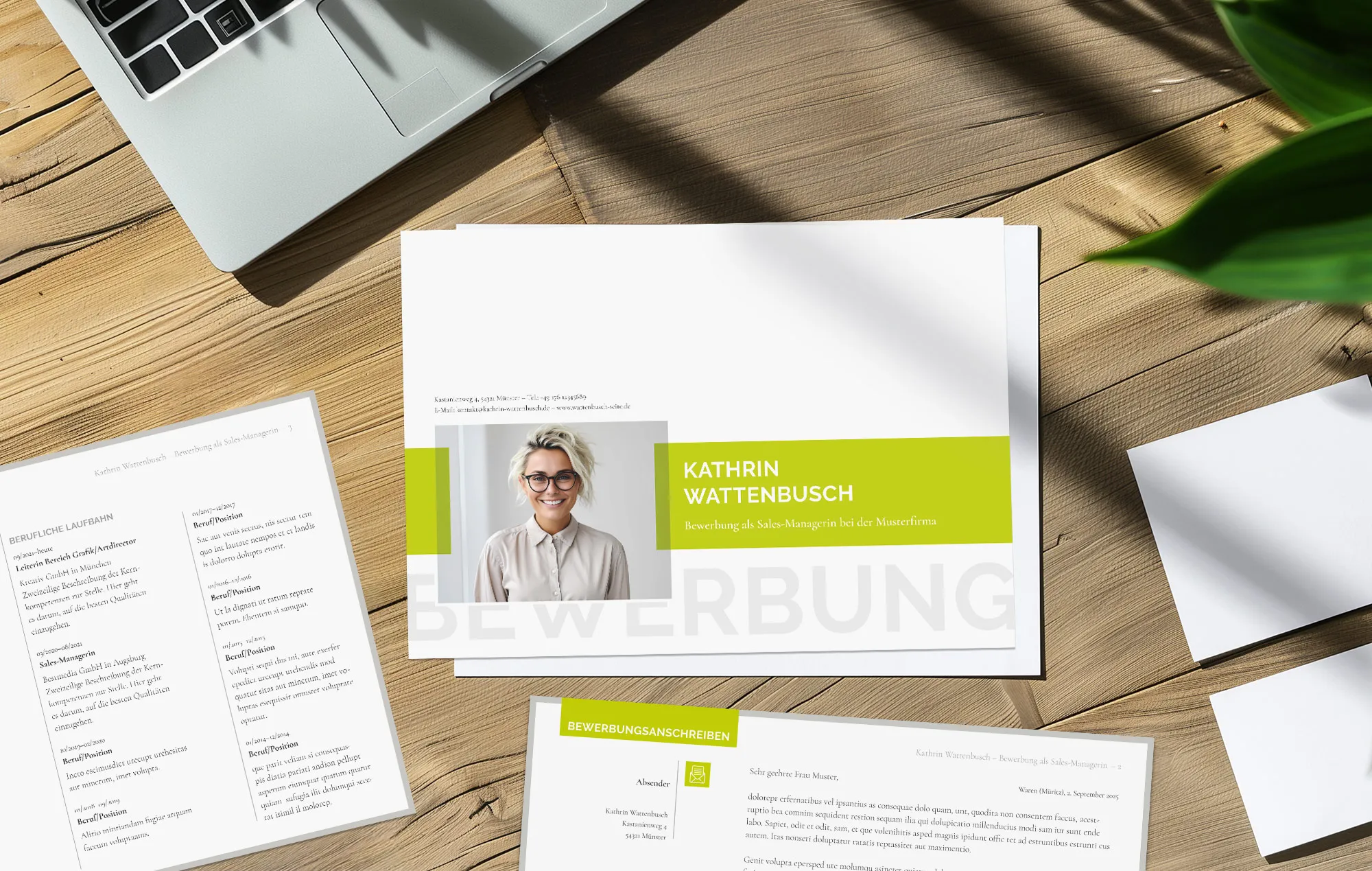Job interview: How to prepare properly
Preparing for a job interview is much more than just researching information about the company and polishing your answers to standard questions. It is a complex process that involves your professional skills as well as your psychological preparation and a range of other measures. A successful interview depends on many factors: your appearance, your ability to communicate confidently, your knowledge of your own positioning and, of course, your preparation for unexpected questions.

In this article, I would like to explain how you can prepare for a job interview in order to present yourself to a potential employer with maximum confidence.
Table of contents
- Where to start preparing for the job interview
- Preparation for the job interview: Analyzing the job advertisements
- Preparation for the job interview: company analysis
- Job interview questions that you need to be prepared for day and night.
- Job interview: Non-verbal communication
- Job interview: How to make a good impression at first glance
- Bonus for preparing for a successful job interview
Where to start preparing for the job interview
To be successful at the interview, you need a step-by-step plan that you should put into action long before your dream interview with a potential employer. In a nutshell, it looks something like this:
- You should start by analyzing your resume and cover letter, as they are the starting point for any interview.
- The next step is to research the company, its culture, values and structure. This will help you understand what to expect in the interview and how to prepare your answers.
- It's also important that you familiarize yourself with the most common questions that may come up during the interview and prepare clear, concise answers. Just the standards.
- You should pay particular attention to your non-verbal communication - clothing, body language, facial expressions and tone of voice. Sometimes they can say much more about you than words. Let's take a look at how you can make a good impression at first glance, during the first handshake and throughout the interview.
- The final phase of preparation is about working on your emotional state. I'll show you some relaxation and self-control techniques that you can use to reduce the stress and anxiety that often accompany important meetings.
So let's try together to walk this imaginary path to a successful interview and step by step increase your chances of getting the job you want.
Ready for your next career move? With our professional job application templates on TutKit.com, you're guaranteed to stand out from the crowd. Buy now and impress your future employer with a professional resume!
Preparation for the job interview: Analyzing the job advertisements
A qualitative job application analysis is the first step in preparing for a job interview. It will help you prepare for the interview with a thorough understanding of your strengths and the ability to confidently present your professional experience. This will help you make a positive impression on the employer and increase your chances of getting the job. Here's a step-by-step guide on how to do it right to look as confident as possible and convince the interviewer:
- Check if your resume is relevant to the job: make sure your resume matches the requirements of the job. Read the job description carefully and note down the most important skills and experience that match yours. Highlight the parts of your resume that directly relate to the requirements of the job so you can focus on them in the interview.
- Analysis of achievements: Write down all the accomplishments that are mentioned in your resume. Focus on those that demonstrate your key competencies and effective skills for the job. Prepare concrete examples from your own experience that demonstrate your achievements. This will help you to speak confidently about your achievements during the interview.
- Assess key competencies: Carefully review the skills section of your resume. Make sure you are prepared to discuss each of these skills in detail. Prepare examples of situations where you have used these skills. This will boost your confidence and help you to provide concrete evidence of your competence.
- Prepare for frequently asked questions: Based on your resume analysis, prepare answers to frequently asked questions, such as "Tell us about yourself," "What are your strengths?" and "Why do you want to work for our company?" You can read more about these questions and the best answers in our specialist articles. Use the information from your CV to back up your answers with specific examples and achievements.
- Recognize weaknesses: Analyze your resume for any weaknesses or gaps in your experience. Prepare answers to questions that may arise on these points. Find ways to explain these gaps in a positive way, e.g. as a period of self-development or education, the birth of a child.
- Update the information: Make sure all the information on your resume is current and accurate. Check contact information, work and education history. Add new achievements or skills that could be relevant to the job.
- Visual analysis: Check the layout of your CV. It should be structured, easy to read and professional. Use clear headings, bullet points and paragraphs to make the information easier to understand. Pay particular attention to the fonts, their size and legibility. We have the perfect CV templates for this purpose.
- Cover letter review: If you have submitted an application that includes a cover letter, make sure it matches your resume and strengthens your application. The cover letter should highlight your greatest accomplishments and explain why you are the best fit for the position.

Preparation for the job interview: company analysis
Researching the company, its culture, values and structure is the second major step in preparing for the interview. This will give you a clear picture of the company and enable you not only to answer questions confidently, but also to ask the interviewer well-founded questions and thus show your serious interest in the position. The company is often also interested in whether you are a good cultural fit for the position, your colleagues and the company values.
Follow these steps for the best possible preparation:
- Visit the company's official website: check out the "About Us" section, which usually describes the company's history, mission and values. Read the latest news, press releases and announcements from the company. This will tell you more about the company's latest achievements and future plans. Some companies have a "Careers" section on their website. There you will find information about the company culture, employee development programs and social initiatives.
- Social media: Check out the company's official LinkedIn page. Read the posts the company publishes to understand its focus and priorities. Also check out platforms like Facebook and Twitter. This will give you more information about the company's culture, participation in social initiatives and interaction with customers and employees. Watch YouTube videos about the company, including executive interviews, webinars and presentations, to get a sense of the company's strategy and how it operates. Perhaps one of the executives is already a guest on a podcast. If so, listen to the podcast episode.
- Statements from employees: Read statements and comments from current and former employees. Look for references to the corporate culture, working conditions, management style and career opportunities. You can do this on Glassdoor, for example, for internationally oriented companies. Kununu is another source where you can find reviews of employers in Germany. They help you to get an objective impression of the internal atmosphere in the company.
- Professional networks and forums: Take a look at the employer on Xing and in various industry networks. Search for discussions about the company on thematic subreddits such as Reddit. There you can find useful insights from former or current employees. As Reddit has become more important for search engine optimization since 2024, companies try to place posts about themselves there.
- Analyze the competition and the industry: Read reports about the industry in which the company operates to understand its market position and key challenges. Research the company's competitors to understand its strengths and weaknesses.
- Network of contacts: If you know people who work or have worked for the company, talk to them. Ask them about their experience, the company culture and working methods. If possible, attend professional conferences, seminars and meetings where you can meet the company's employees and get even more information about the company.
- Financial reports and publications: Look at the company's financial reports. This will help you understand the company's financial position, investment plans and strategic priorities. Read analytical articles about the company in business magazines and publications. This will give you an insight into the company's market strategy and growth prospects.
TutKit.com makes it easier than ever to create stunning job applications. Our job application templates are just a click away. Visit us now and take the next step in your career!
Job interview questions that you need to be prepared for day and night.
Here are 10 important job interview questions that you should always be prepared for, with possible acceptable answers. By preparing for them, you can give yourself an edge and answer interview questions confidently, demonstrating your competence and preparedness.
Tell something about yourself!
Sample answer: I have five years of experience in marketing and specialize in digital strategies and social media. In my previous job, I managed a team of five people and increased customer retention by 20% within a year
Why do you want to work for our company?
Sample answer: I am inspired by your innovative approach to product development and your commitment to sustainability. I believe my environmental design skills can be an asset to your team.
What are your strengths?
Sample answer: My strengths include analytical thinking, the ability to adapt quickly to change and effective project management. This has helped me to successfully complete several complex projects in a short period of time (please briefly describe the projects and their benefits).
What are your weaknesses?
Sample answer: Sometimes I can be too demanding of myself, but I have learned to use this as an incentive to improve. I am also working on a better work-life balance.
Where do you see yourself in five years' time?
Sample answer: In five years, I see myself in a leadership position in this company where I can use my skills to develop innovative projects and train new employees.
Tell us about a conflict at work and how you resolved it!
Sample answer: In my previous job, there was a conflict over different approaches to a project. I organized a meeting where we openly discussed our points of view and found a compromise that allowed us to successfully complete the project.
Why did you leave your previous job?
Sample answer: I was looking for new challenges and professional development opportunities that I couldn't find in my previous job. Your company offers me exactly the opportunities I was looking for.
Tell us about your successes!
Sample answer: In my previous job, I developed a marketing campaign that led to a 30% increase in sales within six months. This achievement was recognized by the management and I was named 'Employee of the Month'.
How do you deal with stress?
Sample answer: I deal with stress by planning my working hours and setting priorities. I also meditate and exercise to stay calm and focused.
Why should we hire you for this position?
Sample answer: I have the experience and skills to fulfill the requirements of this position. I am always eager to achieve good results and am ready to make an important contribution to the development of your company.

Job interview: Non-verbal communication
Non-verbal communication at a job interview plays a bigger role than you might think in making a positive impression. For it to work properly and contribute to your bonus points, you need to choose the right clothes and control your body language, facial expressions and intonation. That way you can make a good impression at first glance.
Choosing your clothes
Find out about the company's dress code. If it is a corporate culture in the banking and insurance sector, choose a business suit. If the company is more informal, you can choose business casual. The clothes should be clean, well pressed and neat. Shoes should also be clean and in good condition. Prefer neutral and calm colors: Blue, gray, black or beige. Avoid bright and flashy colors. Ideally, you should check the company website in advance to see how the team presents itself there. This will give you a good orientation.
Body language
Before you enter the room, make sure your hands are warm but not sweaty. If your hands are cold, rub them warm against your thighs. Sit up straight but relaxed. This shows your self-confidence and openness. Emphasize your words with gestures, but don't overdo it. Place your hands on the table or in your lap, don't cross them. Also make sure that you maintain eye contact, as this shows your interest and confidence. Avoid looking at the floor or to the side.
Facial expression
Start the conversation with a genuine smile. This helps to create a warm atmosphere and show your friendliness. Show the appropriate emotions on your face. When you talk about successes, show pride, when you talk about challenges, show seriousness. Use eye contact to emphasize your words. Maintain a natural expression and avoid opening your eyes too wide or squinting.
Tone of voice
Speak calmly and confidently. Avoid a tone that is too high or too low. Speak slowly, but not too slowly. Clear and understandable language demonstrates confidence and professionalism. Use pauses to emphasize important points. This helps the listener to absorb your information better.
Your dream job is already waiting - prepare yourself optimally with our professional application templates from TutKit.com. Simply select, personalize and succeed. Get started today!
Job interview: How to make a good impression at first glance
Here are some tips on the little things that can make a big impression, but that few people pay attention to because they are so formal:
- Enter the room where the interview will take place confidently, but not rushed. The first step should be decisive, but not overconfident.
- The handshake with the employer should be firm, but not too strong. Maintain eye contact during this formality.
- Say "hello" politely and state the name of the interviewer if you know them.
General tips
- Listen actively to the person you are talking to by nodding your head and maintaining eye contact. This shows your interest and respect.
- Be calm and confident. Avoid nervous movements, such as tapping your fingers on the table or holding objects in your hand, e.g. a pen.
- End the conversation with a thank you. Thank them for their time and the opportunity to discuss your application.
The right non-verbal communication will help you make a positive impression and show you are a confident and professional applicant.
Bonus for preparing for a successful job interview
In important moments, such as job interviews or other important meetings, it helps to reduce stress and anxiety in advance. Here you will find a detailed description of relaxation and self-control techniques to help you manage tension.

Relaxation methods
Deep breathing: Sit or stand as comfortably as possible. Breathe in slowly through your nose and count to four in your mind. Hold your breath for four counts and then exhale slowly through your mouth, counting to four again. Deep breathing helps to activate the parasympathetic nervous system, lower cortisol levels and promote relaxation.
Progressive muscle relaxation: Start with your toes and gradually tense each muscle group in your body for 5-10 seconds and then slowly relax them. Move from your feet to your head. This technique helps to reduce physical tension, which contributes to overall relaxation.
Meditation: Find a quiet place, sit as comfortably as possible and close your eyes. Concentrate on your breathing or repeat a mantra. Meditation helps to calm the mind, reduce stress and improve concentration.
Visualization: Close your eyes and imagine a peaceful place or the successful conclusion of a job interview. Imagine the details - sounds, smells, sensations. Visualization helps to psychologically set yourself up for a positive outcome and reduce anxiety.
Power poses: Do some power gestures, such as putting your arms on your hips or a victory pose like after a 100 m sprint. These power poses ensure that your testosterone increases and your cortisol decreases. This will make you look more competent and confident. Sounds silly, but it really works. Find a small hiding place, perhaps the toilet, and do the power poses for 1 to 2 minutes. That's enough.
Self-control techniques
Mental attitudes: Set positive affirmations like "I have confidence in my abilities" or "I am prepared and ready for this." Repeat them before an important meeting.
Grounding technique: If you are feeling anxious, try to focus on the present moment. For example, describe five things you see, four things you hear, three things you touch, two things you smell, and one thing you taste. This grounding technique helps you to focus on the present moment and distracts you from anxious thoughts.
Rational thinking: When anxious thoughts arise, ask yourself how realistic they are. For example: "Is there any reason to think that I won't be able to handle the situation?" Reframe your thoughts in a positive way. Rational thinking will help you.
What else can help you prepare?
There are rules you can follow to avoid unforeseen situations. For example, avoid heavy meals and stimulants such as caffeine before an important meeting. Choose a light, balanced meal. Drink plenty of water before the meeting to avoid dehydration, which can increase stress levels. Get enough sleep the night before the interview, as good sleep reduces anxiety and improves concentration. All of the above will help you reduce stress and anxiety on a physical level and ensure you are confident and effective in important meetings. And simulate the job interview with your partner or a friend. This will make you feel more confident.
One last piece of advice
We usually go to work because we need money. Please don't contradict this, because in most cases this is the case. We should only work for good money or to learn something. If one of the two things is missing, it's time for a job change.
Work is one of the key factors for a stable life. It is completely normal that losing a job and looking for a new one causes stress. To avoid this stress, you should try to do something you love. Yes, that sounds trivial. If you make money doing something you enjoy, you will always be successful because you put a piece of your soul into your work. This makes you an expert with a high energy level in your field, and you don't need to be afraid of changing jobs. And one more thing: don't go to a job interview as if you were forced to do it. If you've been invited, it means the employer needs someone to do the work. Go to meet new people and enjoy talking to people who love the same things you do. Maybe it won't work out this time and you won't get the job you wanted. But that doesn't mean that something might not change next year. Life is very unpredictable. I'm glad you've read this text to the end and wish you success and luck!
From Vitalii Shynakov
